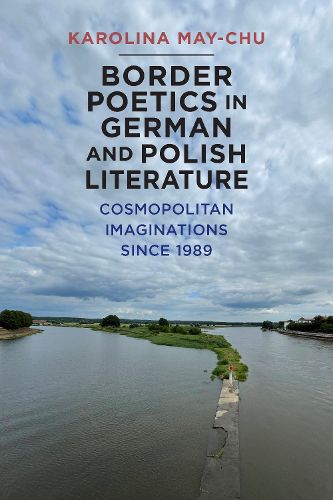Readings Newsletter
Become a Readings Member to make your shopping experience even easier.
Sign in or sign up for free!
You’re not far away from qualifying for FREE standard shipping within Australia
You’ve qualified for FREE standard shipping within Australia
The cart is loading…






Examines how contemporary German and Polish novels reimagine borderlands as cosmopolitan spaces by engaging in border poetics, a narrative practice that relates political borders to figurative boundaries. Globalization notwithstanding, we live in an age of borders, as the ongoing conflict at Europe's eastern edge reminds us. Borders are meant to protect, but they more often divide and exclude. This book, however, focuses on literature that pushes back against the divisiveness of borders, advocating for transborder connections and criticizing exclusionary boundaries. It examines novels that reimagine past and present German-Polish borderlands as cosmopolitan spaces. Novels by Nobel Prize winners Olga Tokarczuk and Guenter Grass are discussed alongside works by authors less well known internationally: the Polish Inga Iwasiow, the German Tanja Dueckers, and the German-Polish Sabrina Janesch. The book utilizes and elaborates the concept of border poetics, a narrative and cultural practice that places political borders in relation to less concrete borders such as those of gender, ethnicity, or class, as well as in relation to epistemological and ontological boundaries: of language, knowledge, even reality. Because border poetics rests on the same productive tension between the particular and the universal that drives contemporary notions of cosmopolitanism, the book argues for the practice as an expression of what sociologist Gerard Delanty has termed "cosmopolitan imagination." The richly contextualized analysis is framed within transnational German Studies and draws on border studies, cosmopolitanism, European literature, and world literature.
$9.00 standard shipping within Australia
FREE standard shipping within Australia for orders over $100.00
Express & International shipping calculated at checkout
Examines how contemporary German and Polish novels reimagine borderlands as cosmopolitan spaces by engaging in border poetics, a narrative practice that relates political borders to figurative boundaries. Globalization notwithstanding, we live in an age of borders, as the ongoing conflict at Europe's eastern edge reminds us. Borders are meant to protect, but they more often divide and exclude. This book, however, focuses on literature that pushes back against the divisiveness of borders, advocating for transborder connections and criticizing exclusionary boundaries. It examines novels that reimagine past and present German-Polish borderlands as cosmopolitan spaces. Novels by Nobel Prize winners Olga Tokarczuk and Guenter Grass are discussed alongside works by authors less well known internationally: the Polish Inga Iwasiow, the German Tanja Dueckers, and the German-Polish Sabrina Janesch. The book utilizes and elaborates the concept of border poetics, a narrative and cultural practice that places political borders in relation to less concrete borders such as those of gender, ethnicity, or class, as well as in relation to epistemological and ontological boundaries: of language, knowledge, even reality. Because border poetics rests on the same productive tension between the particular and the universal that drives contemporary notions of cosmopolitanism, the book argues for the practice as an expression of what sociologist Gerard Delanty has termed "cosmopolitan imagination." The richly contextualized analysis is framed within transnational German Studies and draws on border studies, cosmopolitanism, European literature, and world literature.